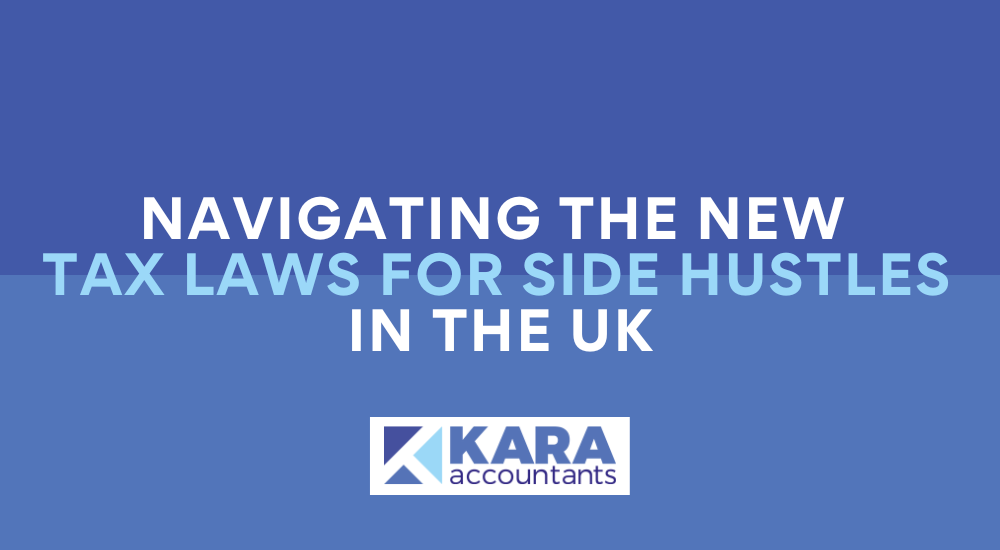
Navigating the New Tax Laws for Side Hustles in the UK
In an era where the gig economy is thriving and side hustles have become a common means of supplementing income, understanding the tax implications of your additional earnings is paramount. As of 2024, the UK has introduced new tax laws specifically targeting individuals with side incomes exceeding £1000. Let’s delve into what these changes entail and how they may impact you as a side hustler.
The £1000 Trading Allowance:
One of the key changes introduced in 2024 is the £1000 trading allowance. This allowance allows individuals to earn up to £1000 per year from their side hustle without needing to declare or pay tax on these earnings. It’s essentially a tax-free threshold designed to simplify the tax obligations for those with small amounts of additional income.
Who Does it Apply to?
The trading allowance is applicable to anyone with additional income from self-employment, casual work, or any other form of trading activity. This includes freelance work, selling goods online, or providing services on a part-time basis. Whether you’re a student selling handmade crafts on Etsy or a professional offering consulting services outside of your regular job, if your earnings from these activities exceed £1000 in a tax year, you’ll need to take note of the new regulations.
What Counts Towards the £1000 Allowance?
It’s important to understand what constitutes income under this allowance. The £1000 trading allowance covers gross income from trading activities. This includes sales revenue, fees for services rendered, or any other payments received in the course of your side hustle. However, it’s essential to note that expenses incurred in generating this income cannot be deducted from the £1000 allowance. If your expenses exceed your income, you may need to register for self-assessment and declare your earnings accordingly.
Keeping Records:
While the £1000 trading allowance simplifies the tax process for many side hustlers, it’s still crucial to maintain accurate records of your income and expenses. HM Revenue and Customs (HMRC) may request documentation to support your tax return, so it’s wise to keep receipts, invoices, and other relevant paperwork organized and easily accessible. This ensures compliance with tax regulations and minimizes the risk of penalties or fines for inaccuracies.
Beyond the Allowance:
If your side hustle earns more than £1000 in a tax year, you’ll need to register for self-assessment and declare your earnings to HMRC. This involves completing a tax return and paying any applicable taxes on your additional income. While this may seem daunting, there are resources available, such as online guides and professional tax advisors, to help navigate the process smoothly.
As the gig economy continues to evolve, so do the tax laws governing side hustles in the UK. The introduction of the £1000 trading allowance in 2024 provides a simplified approach for individuals earning modest amounts from their additional ventures. However, it’s essential to stay informed about your tax obligations and seek guidance if needed to ensure compliance with HMRC regulations. By understanding and adhering to the new tax laws, you can focus on growing your side hustle with confidence and peace of mind.

This Post Has 0 Comments